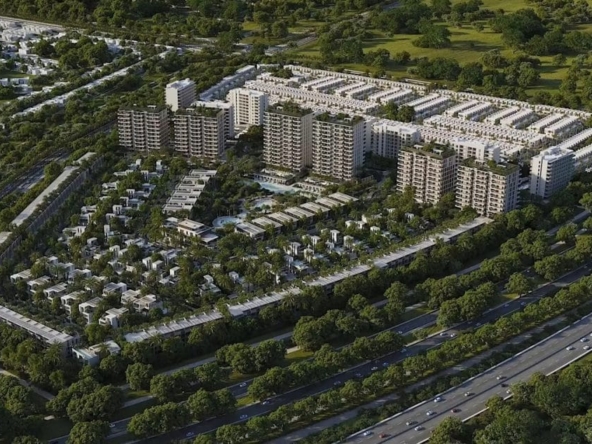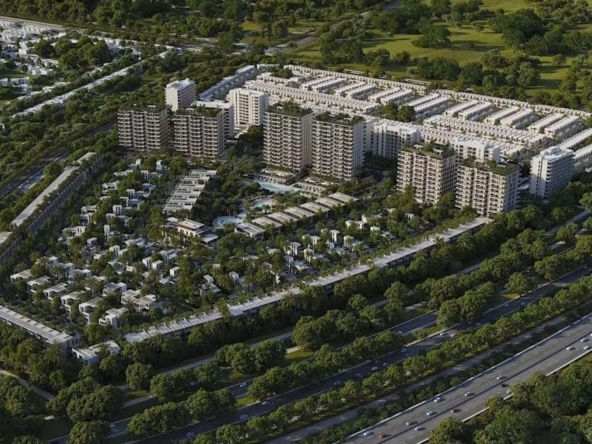Understanding the Ferocity of Dubai’s Real Estate Landscape
Dubai’s real estate market is one of the most competitive and rapidly evolving property ecosystems in the world. With sky-high demand, a surge of foreign investments, and continuous government regulations, staying afloat as a real estate agent in this region is not for the faint-hearted. The glitzy skyline hides a battlefield where only the savviest professionals survive.
High Stakes, Higher Expectations
Constant Market Shifts Make Consistency Nearly Impossible
In Dubai, market trends shift faster than most agents can adapt. A property that’s in high demand this quarter could be outdated or overpriced in the next. The frequent fluctuations in supply-demand balance, affected by global markets, oil prices, and policy changes, make forecasting incredibly complex.
Luxury Dominates — and Not Everyone Can Sell It
The luxury property segment dominates the market. From villas in Palm Jumeirah to penthouses in Downtown Dubai, buyers expect more than just square footage — they want exclusivity, concierge-level service, and a strong ROI. Many agents fail because they cannot speak the language of luxury or fail to build trust with high-net-worth individuals.
Inadequate Knowledge of Regulations and Law
Frequent Legal Reforms Leave Many Agents Behind
Dubai’s Real Estate Regulatory Agency (RERA) updates laws and compliance procedures regularly. Agents who fail to stay current risk losing credibility or, worse, facing legal penalties. From tenancy regulations to freehold ownership laws, only agents with up-to-date legal literacy can thrive.
Off-Plan Property Complexities Confuse Many
Off-plan properties are a booming sector in Dubai, offering high returns to investors. However, navigating off-plan deals requires deep knowledge of developer credibility, construction timelines, payment plans, and handover procedures. A single misstep can lead to lost deals or reputation damage.
Hyper-Competition and Oversaturation
The Market Is Flooded with New Agents
Thousands of agents enter the Dubai real estate sector every year, lured by the promise of tax-free income and high commissions. Unfortunately, most lack experience, local market insights, or a long-term business plan. As a result, they burn out quickly, unable to generate consistent leads or close sales.
Cutthroat Commission Wars
With so many agents fighting for clients, commission undercutting has become rampant. This toxic culture forces many to work for unsustainable rates, leading to poor service delivery, missed opportunities, and ultimately, business failure.
Tech-Savvy Buyers Are Outpacing Traditional Agents
Today’s Buyers Are More Informed Than Ever
Modern buyers — especially expats and investors — often know the market better than the agents themselves. They use online portals, AI-powered apps, and detailed market analytics before even contacting an agent. Without digital fluency, agents quickly become obsolete.
Failure to Leverage Digital Tools
The best-performing agents utilize CRM systems, lead-generation tools, social media platforms, and automated follow-ups. Those still relying on cold calls and flyers are being left behind. Dubai is a smart city, and only smart agents can match its pace.
Client Expectations Are Sky-High
Investors Want Tailored Portfolios, Not Property Lists
Gone are the days when a buyer asked for a 2-bedroom flat and the agent showed five listings. Today’s investors demand full property investment strategies, complete with rental yield estimates, mortgage consultations, and even property management services.
Personalized Service Is No Longer a Bonus — It’s a Requirement
Buyers expect agents to act as consultants, negotiators, and after-sales managers. From visa guidance to interior design contacts, an agent’s job doesn’t end at closing. Many agents struggle to offer this full-service experience, making them easily replaceable.
International Competition Is Real and Relentless
Foreign Firms Are Setting New Standards
Global real estate giants and international brokerages are entering the Dubai market, bringing with them superior training programs, branding power, and marketing budgets. Local agents without these resources struggle to stay relevant.
Remote Buying Trends Are Growing
Thanks to virtual tours and online payments, international buyers can purchase property in Dubai without ever visiting. Agents who cannot cater to remote clients with digital contracts, video consultations, and instant responses are at a severe disadvantage.
Poor Branding and Weak Online Presence
Most Agents Don’t Treat Themselves as a Brand
In today’s age, an agent without a strong personal brand is invisible. Top agents are building authority with LinkedIn content, YouTube walkthroughs, and SEO-optimized websites. The rest are lost in the noise.
Neglecting SEO and Content Marketing
Clients start their search on Google, not on agent business cards. Without high-ranking website content, agents don’t show up. Those who understand the power of blogging, local SEO, and Google My Business are dominating online leads.
Inadequate Follow-Up and Client Retention Strategies
Agents Focus on One-Time Sales Instead of Lifetime Value
The brutal truth is: one sale doesn’t make a career. Retention matters. Smart agents follow up months after closing, offering property maintenance help, rental support, and market updates. The rest never get a second deal from the same client.
Failure to Build Referral Networks
Referral business is gold in Dubai’s real estate. But many agents never build long-term relationships or ask for referrals. Their short-sightedness keeps them trapped in constant client-chasing mode.
Conclusion: Only the Elite Survive
Dubai’s real estate market is not just competitive — it’s ruthlessly demanding. To thrive, agents must evolve into multi-skilled professionals who combine legal knowledge, market insight, tech adoption, branding savvy, and exceptional client service. The agents who fail to adapt are not just left behind — they’re forgotten.
Only the best survive. The rest are casualties of one of the world’s most dynamic property markets.




